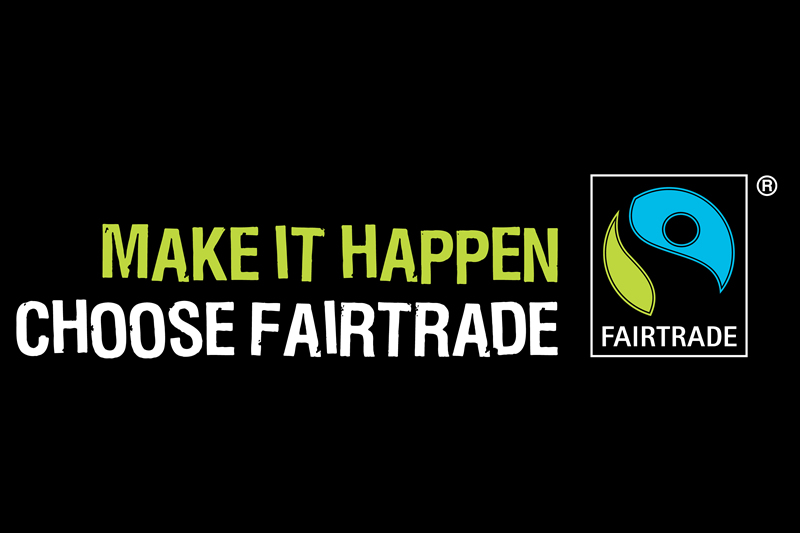
A Welsh free range egg producer has called for Fairtrade accreditation for British farmers.
Tony Burgess, who runs Birchgrove Eggs together with his wife, Gwen, believes that many British farmers need the backing of the Fairtrade Foundation just as much as farmers in other countries.
Former Soil Association director, Patrick Holden, agrees. He said that the Soil Association pressed for the Fairtrade scheme to be extended to British producers some years ago, but the idea was blocked by the Fairtrade Foundation. The foundation, itself, says it has decided to concentrate its efforts with producers in developing countries.
Tony Burgess says that recent figures show that many farmers in the United Kingdom are struggling to make a living. “Here in Wales the Welsh Government recently published statistics that highlighted that, on average, farm incomes in Wales will fall by 29 to 37 per cent this year due to the ever rising costs of inputs,” he said. “This statistic will, I am sure, be mirrored throughout the whole of the United Kingdom’s farming sector.”
Free range egg producers have been hit particularly badly by rising feed prices. Poor harvests and market speculation sent cereal prices soaring at a time when the prices free range producers received for their eggs were depressed because of market oversupply. The free range market seems to have returned to some level of balance and flock surveys carried out by the British Free Range Egg Producers’ Association (BFREPA) indicate that bird numbers are unlikely to increase substantially, but BFREPA figures suggest that producers are still struggling. The association’s costings for July showed that free range producers were losing, on average, more than £32,000 per flock, or £2.71 per bird.
Tony Burgess said that the squeeze on farmers’ incomes ought to show that farmers in this country would benefit from the Fairtrade movement. “Why can’t egg producers here in the UK be eligible for Fairtrade accreditation? The criteria is that produce must be marketed and produced through a co-operative, fair and stable prices must be adhered to by the retail sector. Fairtrade membership allows access to pre-finance arrangements and guarantees market access,” said Tony, who said it was just as important that farmers in this country received a fair deal for the food they produced.
“Also, a recent EU ruling positively discriminates towards sourcing Fairtrade produce for use in all member states,” he said. “I can’t understand, given these statistics of farm incomes, why Fairtrade won’t allow farming members from the UK who fulfil these criteria to join. The growing population of the UK needs local farmers to ensure future food security and to care for the environment. But to do this we need to be profitable too, and Fairtrade accreditation would certainly help with this.”
A spokeswoman for the Fairtrade Foundation said that the organisation had taken the decision to concentrate on what it did well, and that was to work with producers in developing countries. She said that some years ago the Fairtrade Foundation had, together with the Soil Association, looked into extending the scheme to farmers in the United Kingdom. “At the time we were a small organisation and it was felt that we should continue to concentrate our expertise in the developing world.”
Patrick Holden, who was the director of the Soil Association for 15 years until 2010, said it was some seven to eight years since it was considered. “The Soil Association was very interested but the Fairtrade Foundation blocked it. The Soil Association decided that we didn’t want to make a fuss about it at the time, but in retrospect I think we probably should have made a fuss. Fair trade should start at home. There are farmers here in the UK who are vulnerable, too.”
The spokeswoman for the Fairtrade Foundation said that the organisation did work with farmers in the United Kingdom, forging links between producers here and those in the developing world. She cited one example where links had been forged between a milk producer in the Lake District and a banana farmer in the Windward Islands, although she said that so far the foundation had taken the decision to restrict certification to producers in developing countries rather than extending it to domestic producers. However, she said it was still possible that UK farmers could be covered by the scheme in the future. “Never say never,” she said.
The Fairtrade Foundation was established in 1992 by CAFOD, Christian Aid, Oxfam, Traidcraft, the World Development Movement and the National Federation of Women's Institutes and is an independent non-profit organisation that licenses use of the Fairtrade mark on products in the United Kingdom. For products to qualify as Fairtrade, buyers must pay at least the Fairtrade minimum price. This price aims to cover the costs of sustainable production for the producer. It is seen as a safety net for farmers when market prices fall below a sustainable level.
When the market price is higher than the Fairtrade minimum price, the buyer must pay the market price, and producers are able to negotiate better prices based on factors such as quality. There are also higher Fairtrade minimum prices for organic crops or higher grades of produce. Through Fairtrade, producers can request pre-financing from buyers and enter into long term, stable contracts.
In the United Kingdom the value of Fairtrade sales reached £1.5 billion in 2012 – an 18 per cent increase on sales in the previous year. According to the Fairtrade Foundation, one in three of all the bananas now sold in the UK is Fairtrade, 40 per cent of bagged sugar sold here is Fairtrade certified, as is more than 26 per cent of all roast and ground retail coffee. Fairtrade products are now sold in more than 120 countries.
